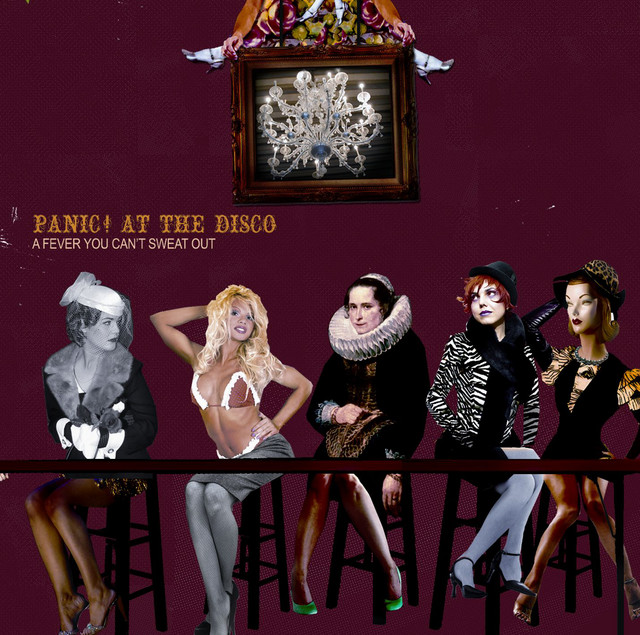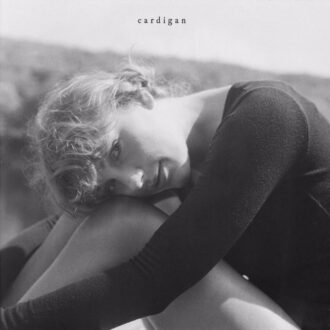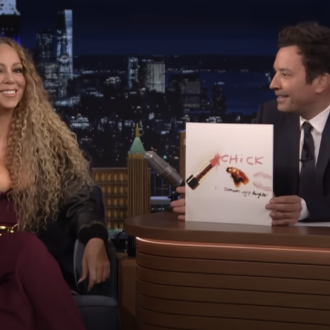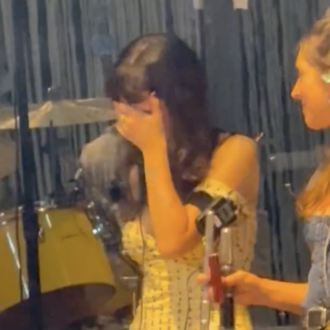I’m the narrator, and this is just the prologue, Brendon Urie sang in 2005. Here’s how the story goes: Four guys in Las Vegas got together and started playing music. First a Blink-182 cover band, they rehearsed in the drummer’s grandmother’s living room before making their own music. One member spammed the internet with their demos, and eventually Pete Wentz caved in and listened, prepared to tell these pests that the songs sucked. Instead, the Fall Out Boy bassist — in Los Angeles recording From Under The Cork Tree at the time — was in awe and drove down to Sin City to sign the group to his label. Thus began Panic! At The Disco, whose 19-year career had one of the bleakest arcs in recent history.
With Brendon Urie on vocals and guitar, Ryan Ross on guitar and backing vocals, Brent Wilson on bass, and Spencer Smith on drums, Panic! At The Disco were one of many acts to lift emo into the mainstream. Alongside the aforementioned Fall Out Boy, as well as My Chemical Romance and Paramore, Panic! At The Disco were redefining the meaning of “emo” — a term whose meaning had already been transforming before they even barged onto the scene. A Fever You Can’t Sweat Out — their first album, which we’re here to talk about today because it turns 20 tomorrow — is emo only in the theater-kid sense of the word. Upon the record’s release, a Pitchfork review gave it a degrading 1.5 and Cory D. Byrom lamented, “It’s sad that this is what emo has become.” But it’s also the most popular emo would ever get.
Millions of Hot Topic regulars and AIM users fawned over A Fever You Can’t Sweat Out, but its mainstream impact only consisted of the huge hit “I Write Sins Not Tragedies.” It’s probably the most conventional song on the LP — aside from the use of the slur “whore,” which gets censor treatment on the radio — adorned with a predictable but rewarding formula of quiet verses dedicated to storytelling and bombastic singalong choruses. The pizzicato cello motif makes the song instantly recognizable, and it offers a sparkle and a sense of mischief akin to “The Pink Panther Theme,” inhabiting that feeling of tiptoeing around a corner. It sets the scene and drags you into it, into this wedding where infidelity was happening just behind the goddamn door, no. Urie’s clean vocals easily appeal to non-emo listeners; he’s a pop singer, which he proved in the (dark) future, especially on his (deplorable) 2019 Taylor Swift collab “ME!”
Otherwise, A Fever You Can’t Sweat Out is in-your-face quirkiness — a grandiose subversion of cabaret exploding with off-kilter electronic dance-punk madness and vaudevillian anthems speckled with Chuck Palahniuk references. The obnoxiousness is matched by their song titles, from “The Only Difference Between Martyrdom And Suicide Is Press Coverage” to “There’s A Good Reason These Tables Are Numbered Honey, You Just Haven’t Thought Of It Yet.” To many, this entire concept results in ear-grating garbage, understandably. In 2016, my colleague Chris DeVille wrote that “the threat they pose to this country cannot be ignored.” For eighth-grade me and my Tumblr friends, the tunes operated as an absolute weirdo extravaganza.
Panic! At The Disco were first and foremost a community rather than a band. Online, fans wrote fan fiction about Urie and Ross (who exited the group in 2009 alongside Jon Walker, who joined after AFYCSO), and the two members used their fictitious romantic pairing to their advantage, building the lore with flirtatious energy onstage (as did MCR’s Gerard Way and Frank Iero, and FOB’s Patrick Stump and Pete Wentz). Their music was theatrical after all, therefore their existence as a band was constant performance, a spectacle to the extreme. Urie in particular was a master at utilizing the internet to add to his public presence; years later, he became famous on Vine for comedy videos. It’s the same reason Swifties love Taylor Swift — blurring the line between life and art can go a long way.
As for the music, the songs buzz, erupt, fizzle, spin, bolt. They’re big songs for big rooms, which is impressive considering the group only spent three and a half weeks in the studio with an $11,000 budget. There’s accordion, organ, cello, trumpet, violin. Mostly, though, there are charged guitars racing underneath splattering, glitchy synths, like on the blaring intro of “Time To Dance,” a pure adrenaline rush. “London Beckoned Songs About Money Written By Machines” surges breathlessly and confronts their status as a band: “Well, we’re just a wet dream for the webzine/ Make us it, make us hip, make us scene, or/ Shrug us off your shoulders/ Don’t approve a single word that we wrote.” It almost feels copied and pasted from FOB’s early repertoire: “We’re only liars but we’re the best/ We’re only good for the latest trends/ We’re only good ’cause you can have almost famous friends/ Besides, we’ve got such good fashion sense.” Emo bands loved satirizing their success as an excuse to be self-deprecating.
Urie belts, whispers, announces in a showman-like style, but mostly speak-sings fast in that almost rap-like way that makes learning lyrics into a game, like when he incoherently blurts out on “Camisado,” “This is the scent of dead skin on a linoleum floor/ This is the scent of quarantine wings in a hospital,” and it sounds like absolute gibberish. Or on the excessively twinkly finale “Build God, Then We’ll Talk” when he twists lines from The Sound Of Music’s “My Favorite Things”: “There are no raindrops on roses and girls in white dresses/ It’s sleeping with roaches and taking best guesses/ At the shade of the sheets and before all the stains/ And a few more of your least favorite things.”
Urie’s showman shtick peeks out the most on “The Only Difference…,” “But It’s Better If You Do,” and “There’s A Good Reason…,” and if you’re not on board then it’s probably some of the worst stuff you’ve ever heard. On the other hand, tracks like the sultry “Lying Is The Most Fun A Girl Can Have Without Taking Her Clothes Off” provide conventional, moody grounding. It was Urie’s take on Brand New’s emo classic “Sic Transit Gloria… Glory Fades,” and it was accompanied by an iconic music video of people with fish tanks on their heads.
No one could’ve guessed where Panic! would go after AFYCSO. The sound of that album was too specific and strange to be replicated. With every subsequent release, they switched gears and lost members. Somehow, they continued to have more breakout hits. 2008’s polarizing, folk-leaning Pretty. Odd. held the oddball feel-good anthem “Nine In The Afternoon.” The track was released at 9 p.m. on the band’s MySpace page, and every now and then you’ll hear it at a bat mitzvah. 2011’s Vices & Virtues remained beloved only within the P!ATD fanbase. Made only by Urie and Smith, it’s a more standard pop-rock record, and, to be honest, I’d go to bat for it.
Dallon Weekes joined Urie and Smith for 2013’s Too Weird To Live, Too Rare To Die! Urie picked up synths and went all in on a futuristic palette; it paid off because the pulsating anthem “This Is Gospel” blew up. For some reason, that cliché chorus — “If you love me, let me gooooo-ooooo-oooooo” — resonated (At one show, Urie swapped out the lyrics and instead sang, “If you love weed, let’s go smoooo-ooooo-ooooke.”) 2016’s Death Of A Bachelor leaned into theater-kid energy once again, and this time Urie decided to cosplay as Frank Sinatra. The whole Vegas motif was getting old.
Then things went astronomically downhill: 2018’s Pray For The Wicked solidified P!ATD as one of the worst bands around, even worse than Imagine Dragons. I’d take “Believer” over “High Hopes” any day. Urie did have an incredible vocal range, and he decided to absolutely fry his vocal chords by constantly abusing it. For some reason, he thought he was Ariana Grande and that we all wanted to hear him sing near-whistle notes for entire choruses. As for 2022’s Viva Las Vengeance, I could not tell you anything about that, and I’m not getting paid enough to put in the research. In 2023 Urie announced P!ATD was over, and everyone let out a sigh of relief they hadn’t realized they’ve been holding. But don’t worry! Urie is dragging the slow death on even longer by doing a reunion set at When We Were Young Fest next month.
It’s sad. Some might say Panic! were terrible from the start. I’d argue that AFYCSO is a misfit masterpiece for awkward youth, albeit an insufferable one — the acquired taste of all acquired tastes — and what came decades after from the same brain is the product of a creative spirit ravaged by fame and depressing instances. Fall Out Boy experienced a not-so-different evolution — many say “Centuries” is one of the worst songs of all time, and I can’t blame them — only in a far less dramatic way.
What happened with Panic! At The Disco — which, by the end, was only Brendon Urie — feels like an unsettlingly obvious metaphor. (Weekes said about his departure, “I did one record with Panic! and after that they started hiring hitmakers to create their records, so they didn’t really need me anymore.”) After all of his songs about hedonism, after all of that decadence, Urie became the very thing he was parodying. The songs that were unbearable in a bemusing tongue-in-cheek way became just unbearable. There’s a video from 2022 of a fire onstage at a P!ATD show and fans are yelling, “Fire! Fire!” and Urie is just dancing around, completely oblivious. Out of all the manufactured cinema, that unplanned moment was the most poetic of Panic!’s career.




